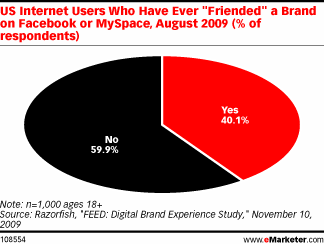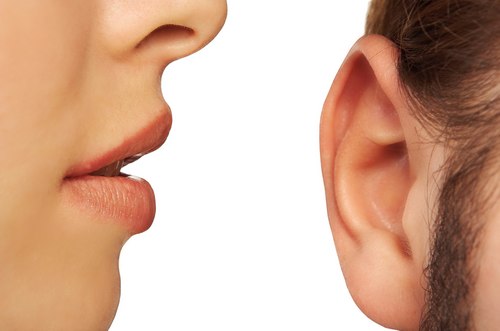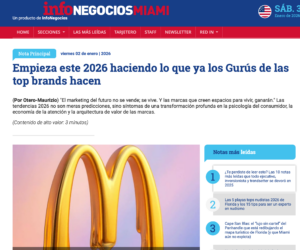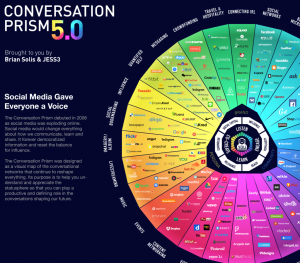As we’re learning, many updates on Twitter, Facebook and other social networks are actually invitations for answers regarding brands. We’ve also discovered that 44% of users readily share brand-related information with others. And, as action speaks louder than words, 48% of those who came into contact with a brand name on Twitter and 34% on other social networks went on to search for additional information on search engines.
Does this information in and of itself serve as an invitation for brands to engage?
Most likely not. The invitation is delivered in the monitoring dashboards of those actively monitoring relevant conversations. Opportunities reveal themselves and also introduce a point of entry.
The data does, however, present a compelling demonstration of activity after the debut of a brand within the statusphere and channels a powerful revelation that companies not paying attention are missing an incredible transformation in consumer behavior. It is a migration that makes participation and engagement increasingly onerous the further it progresses and evolves. Nevertheless, do not despair. Your time is now.
The invitation to engage is evident in the conversations that populate the search results for keywords in any listening tool. But others, those that truly drive activity and ultimately affect the decisions of those seeking information and guidance, are obscure to those without a trained sense of detection and perception.
Before we are marketers, we are consumers. We make decisions based on our experiences, observations and research. We also heavily rely upon recommendations of friends, peers, and influencers, and they have embraced social media as their platforms for exercising authority. It is the convergence of online and real-world dialogue that leads to action.
This collective of voices across all subject matter represent the new influencers.
The buyology of consumers spans from awareness to consideration to purchase to experience to recommendation or discouragement.
As reported in a recent article in eMarketer, “The power of online brand interaction is not to be denied: A solid majority of connected consumers have had their opinion of a brand swayed, either positively or negatively, by an online experience. And more than 97% said that experience influenced whether they purchased a product or service from that brand.”
This data stems from the recent RazorFish “2009 FEED” survey that polled U.S. broadband users who had visited a community site, consumed or created digital media, and spent at least $150 online in the past six months.
The study found that consumers were not only connecting to each other, but also to brands directly.

Interestingly enough, just under 25% had produced content to participate in a brand-related contest. About one-quarter of those polled follow a brand on Twitter. And 40% had friended a brand on Facebook or MySpace.
Consumers reported that their primary motivation for following or friending a brand was to procure access to exclusive deals or offers. @DellOutlet reported $3 million in sales that derived from deals shared on Twitter.
However, here’s the writing on the online wall, quite literally. 64% of consumers reported that they make a purchase from a brand because of a digital experience via a Website, microsite, mobile coupon, or e-mail.

The effect of friending a brand on Facebook or MySpace engenders almost unbelievable results. 96% either always, usually, or sometimes recommend the brand to others (22.94%, 39.15%, and 33.9% respectively). 98% consider the brand when in the market for the product or service (22.69% always, 40.90% usually, 34.41% sometimes). Just under 97% (21.45 always, 38.65% usually, 36.66% sometimes) recognized that engagement raises their awareness of the brand. And, a staggering 97% reported buying a product or service from the brand (17.46% always, 42.89% usually, 36.66% sometimes).
This is why monitoring, establishing and cultivating a strategic presence and inspiring meaningful engagement is so critical in social media. It impacts the bottom line. If we are not present within the attention dashboards of our existing customers and prospects, we intentionally remove ourselves from their decision-making funnel. Consumers are among the new influencers as they now have access to the same tools and channels that reach peers and shape their impressions.
Creating a program rich with value and rewards will cause measurable action. Thus, allowing us to generate goodwill through online participation while tracking consequential business metrics based on actual interaction and performance. Defining and capturing performance data before engagement allows us to establish the “R” to actually calculate the “I” in ROI. Without a proactive participatory program with integrated metrics, not only do we disappear from consumer view, we lose our ability to derive the insights necessary to grow the programs necessary to compete for the future. What’s the return in ROI if “I” equates to ignorance?
In the end however, engagement isn’t the only paradigm necessary for influencing decisions of peers, prospects and customers. The same rules apply to that of product development, packaging, delivery, and support. Each represent an opportunity to shape and steer perception and experiences that ultimately impact the likelihood of future purchases, referrals, and community evangelism.
We earn the relationships we deserve.
Connect with Brian Solis on:
Twitter, LinkedIn, Tumblr, Plaxo, Posterous, or Facebook
—
Click the image below to buy the book/poster:
pr pr+2.0 pr2.0 public+relations marketing advertising interactive social+media socialmedia brian+solis social media media2.0 media+2.0 2.0 smo social+media+optimization marcom communication publicity advertising expert interactive spin brand branding guru social+architect








by friending with brands, you get use to receive good deals very quick, save money and be the first of your friends to get advantage of it, is a great sensation, but I don't follow the brand really, other case, is if the brand has a person to connect to, then I follow, people wants to connect to people, and if there is a friend behind that i will trust him more and maybe try to be part of their initiatives, as you said, participation in contest and such is not that high now
Well Alejandro. We all have a lot to learn…social media requires the humanization of the brand if it is to interact in a relevant manner.
Agreed. This post is very timely — it was published on Cyber Monday, the one day (arguably) where it pays for consumers to have befriended brands!
Brian,
Powerful numbers indeed. But here's my question. For me, it's always been easy to understand how a brand can relate directly to a consumer through social media. But what are the effects for B2B? I never seem to see stats done by Razorfish, etc. on that. Is it something that isn't a big topic of research?
What are your thoughts on expanding your brand through social media, if you are predominantly a B2B enterprise? Thanks, and I hope your Thanksgiving holiday was wonderful.
Hi Jeremy, especially in B2B, people are still looking for direction – in fact, their state of decision might fall within different increments of the buy cycle. My work in social B2B, believe it or not, goes all the way back to Web 1 and discussion groups and forums. I have a post on this subject scheduled within the next two weeks. Hope your holiday was incredible!
Social B2B marketing is interesting to me as well. As the adage goes, businesses are composed of individuals too. With that in mind, I find using social media as a B2B marketing tactic means a couple things:
1. We have to take targeting to another level. Leave general demographics for B2C — you're going after a very select group of people.
2. Just because it's B2B doesn't mean you can lose the 'correct' tone necessary for social networks.
3. You may have to fight harder internally to successfully implement a long-term social strategy.
Anyways, another great post Brian. Cheers.
Thank you Clark! You are absolutely right!
Wow those findings are very favorable to brands. I'm sure that as more research is done in this area that reveals positive brand impact we will see more brands engage with social media. One of the biggest knocks against social media has been undetermined ROI, so as everything online gets more measurable it will lead brands to reach out and connect more directly with users.
Let's just hope this doesn't lead to increased sponsored tweets, or Facebook updates, etc. because there is enough noise out there already and we certainly don't need more.
Brian, I really like the term 'attention dashboards' – this is a powerful reminder of the fact that we must remain vigilant in reaching out to consumers where they are already spending time. Brands must be present where and when consumers are interacting to be considered relevant. Thanks for the post!
I really enjoyed this, because I think sometimes people get too caught up in the analyzing and forget that at the end of the day we are all human. We all have bottom lines and egos. I keep hearing the B2B question and I honestly think it is not that distinct from B2C when you consider that it's still centered around persuasion and inclusion. Keep your eye on the ball and honesty at the center.
Amanda, great comment. Thank you.
Well now a days social media is playing an important role for online brand promotion. Almost every kind of business person are connected to social media.
Brian — Opportunities Revealed…behind the numbers and The reality of an “earned relationship Good job!
just added your article to my blog http://pvesey.blogspot.com/2009/10/tweetable-ma…
pvesey
Opportunities Revealed…behind the numbers. Brian's article Socialized peals back the statistical numbers you are reading in many articles and blogs and shows us the reality of an “earned relationship” — thanks Brian
I added your article to my blog 🙂 http://pvesey.blogspot.com/2009/10/tweetable-ma…
Brian,
the percentages are high if you consider that friending a brand ,results to 10% active users and 90% listeners.So,how come, 60% of them all, end up purchase a product from the company while many (90%)friend a brand and end up having no interaction with it? I thought that we people cared about that 10% effect,what that 10% could do,buy reccomend ,invrease loyalty but those numbers are extremely high and hard to accept
Social media plays an important role for online brand interaction because now almost every person whether the person is Entrepreneur or Business man.
Social media plays an important role for online brand interaction because now almost every person whether the person is Entrepreneur or Business man.
I'm glad that someone has done a study on this. I live in the perfect generation to have seen all these changes. Once Facebook was simply a place to find old friends. Then, slowly the marketing world started to become my friend. What you said about getting the deals on products is definitely true. Once KFC offered me (and everyone else in the state) a free meal. And guess what? by 6 o'clock that night every college student in the county was at KFC. They eventually had to turn people away.
To me, there is no doubt that new media will help PR practitioners. No doubt. You can find the all the reactions to your company here, or ask questions and get feed back. It's just a bigger and better way to research. We just have to make sure we can measure. Obviously we can.
Its really impressive. I think Brands is now getting more enagaged with Social Media and wants to connect every site and boost up their selling with global audience.